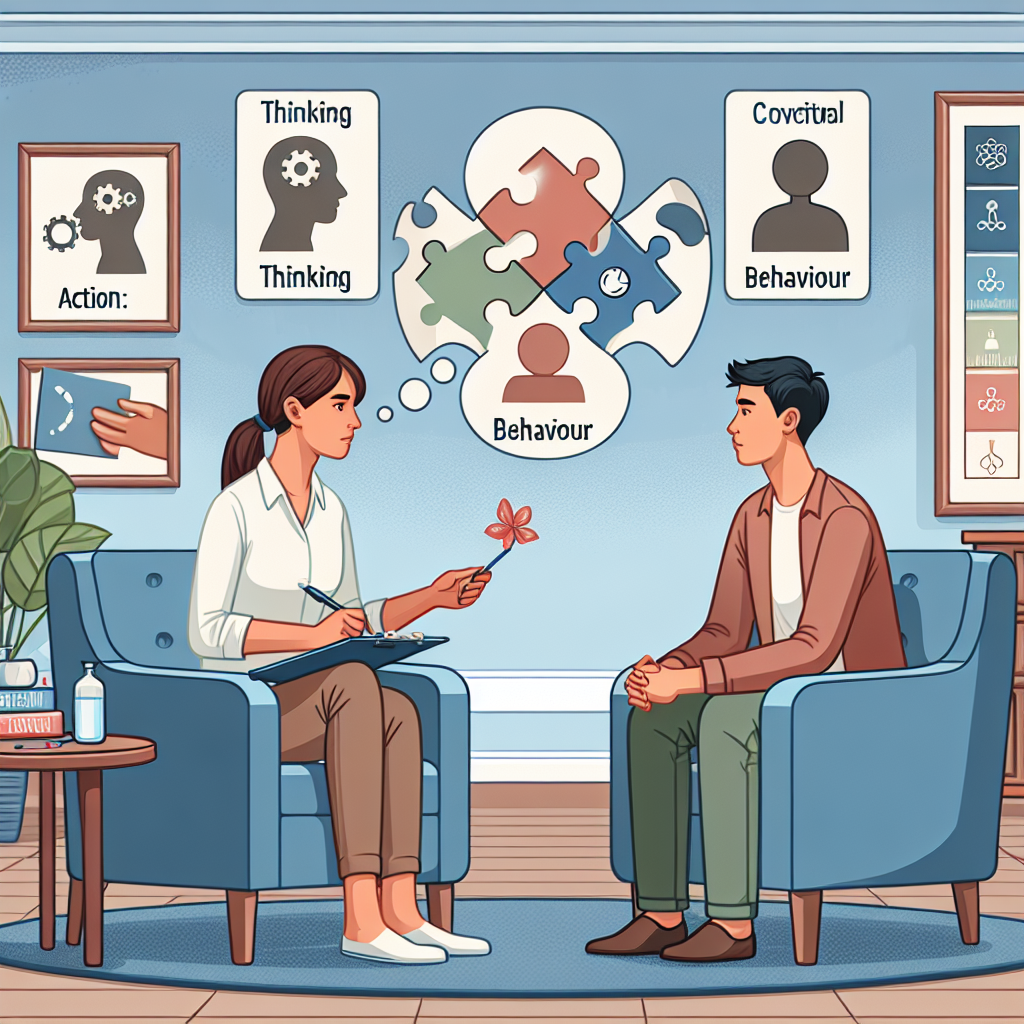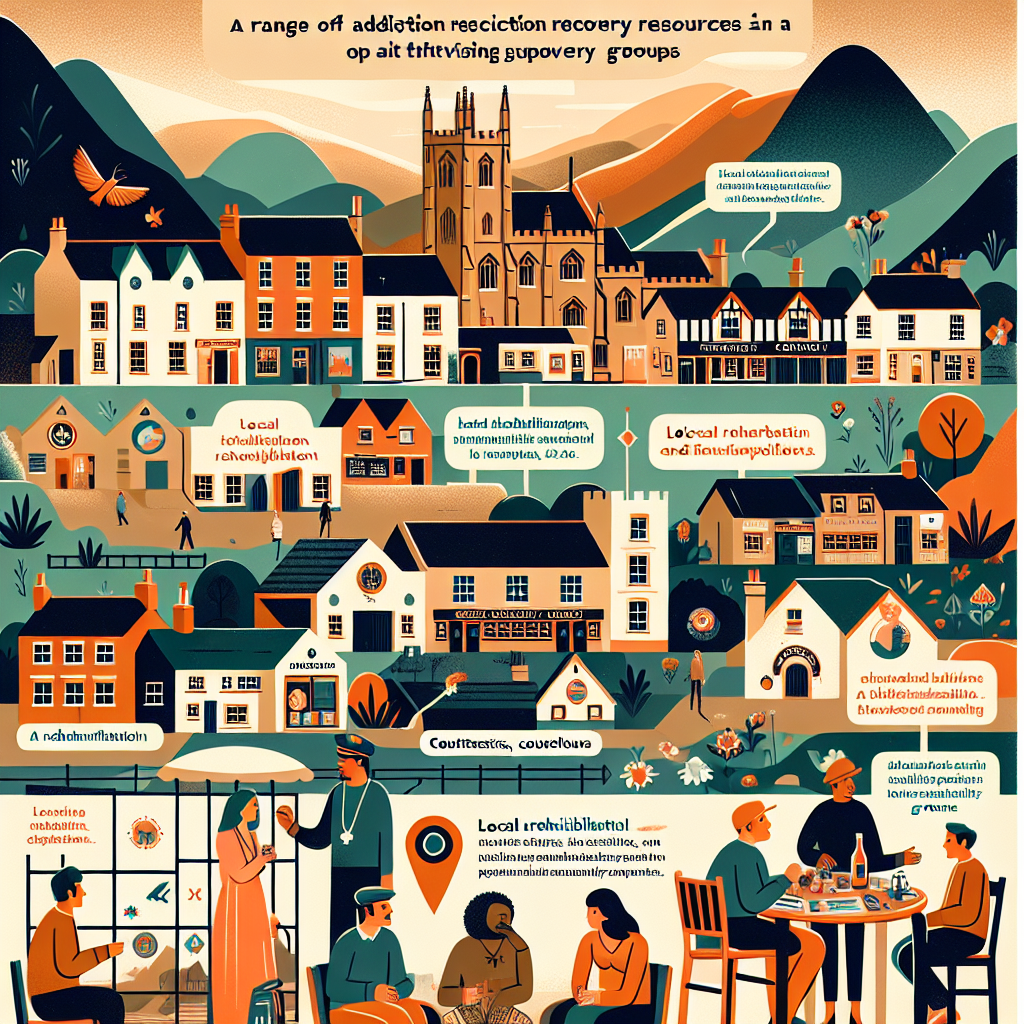-
Table of Contents

“Guiding Minds, Healing Hearts: The Essential Role of Counseling in Addiction Recovery.”
Introduction
Counseling plays a pivotal role in addiction recovery services by providing individuals with the necessary support, guidance, and tools to overcome substance abuse and achieve long-term sobriety. It involves a range of therapeutic techniques designed to address the psychological, emotional, and behavioral aspects of addiction. Through individual, group, and family counseling sessions, clients can explore the underlying causes of their addiction, develop coping strategies, and build a strong support network. Counseling also helps in identifying and managing triggers, improving communication skills, and fostering personal growth and resilience. By addressing both the mental and emotional facets of addiction, counseling is integral to a comprehensive recovery plan, promoting sustained recovery and enhancing overall well-being.
The Importance Of Counseling In Addiction Recovery Services
Counseling plays a pivotal role in addiction recovery services, serving as a cornerstone for individuals striving to overcome substance abuse and reclaim their lives. The journey to recovery is often fraught with challenges, and counseling provides the necessary support, guidance, and tools to navigate this complex path. By addressing the psychological, emotional, and behavioral aspects of addiction, counseling helps individuals understand the root causes of their dependency and develop strategies to maintain long-term sobriety.
One of the primary benefits of counseling in addiction recovery is the creation of a safe and non-judgmental space where individuals can openly discuss their struggles. This environment fosters trust and encourages honest communication, which is essential for effective treatment. Through various therapeutic techniques, counselors help clients explore the underlying issues that contribute to their addiction, such as trauma, mental health disorders, or environmental factors. By identifying these triggers, individuals can gain a deeper understanding of their behavior and work towards healthier coping mechanisms.
Moreover, counseling provides personalized treatment plans tailored to the unique needs of each individual. Addiction is a multifaceted condition, and a one-size-fits-all approach is rarely effective. Counselors assess the specific circumstances of each client, considering factors such as the type of substance abused, the duration of addiction, and any co-occurring mental health issues. This comprehensive evaluation allows for the development of targeted interventions that address the distinct challenges faced by each person, thereby enhancing the likelihood of successful recovery.
In addition to individual therapy, group counseling is a vital component of addiction recovery services. Group sessions offer a sense of community and shared experience, which can be incredibly empowering for individuals who often feel isolated in their struggles. By connecting with others who are facing similar challenges, clients can gain valuable insights, share coping strategies, and build a support network that extends beyond the counseling sessions. This collective approach not only reinforces the recovery process but also instills a sense of accountability and motivation to stay on track.
Furthermore, counseling equips individuals with essential life skills that are crucial for maintaining sobriety. Addiction often disrupts various aspects of a person’s life, including relationships, employment, and overall well-being. Through counseling, clients learn effective communication techniques, stress management strategies, and problem-solving skills that can help them navigate everyday challenges without resorting to substance use. These tools empower individuals to rebuild their lives and foster resilience in the face of adversity.
Another significant aspect of counseling in addiction recovery is the focus on relapse prevention. Recovery is an ongoing process, and the risk of relapse is a reality that many individuals face. Counselors work with clients to develop comprehensive relapse prevention plans, which include identifying high-risk situations, recognizing early warning signs, and implementing coping strategies to manage cravings and avoid triggers. By preparing individuals for potential setbacks, counseling helps them stay committed to their recovery journey and reduces the likelihood of returning to substance use.
In conclusion, counseling is an indispensable element of addiction recovery services, offering a holistic approach that addresses the multifaceted nature of addiction. Through individualized treatment plans, group support, life skills training, and relapse prevention strategies, counseling provides the foundation for lasting recovery. By fostering self-awareness, resilience, and a sense of community, counseling empowers individuals to overcome addiction and embrace a healthier, more fulfilling life. The transformative power of counseling in addiction recovery cannot be overstated, as it paves the way for individuals to reclaim their lives and achieve their full potential.
How Counseling Facilitates Long-Term Success In Addiction Recovery
Counseling plays a pivotal role in addiction recovery services, serving as a cornerstone for individuals striving to achieve and maintain long-term sobriety. The journey to recovery is often fraught with challenges, and counseling provides the necessary support and guidance to navigate these obstacles. By addressing the underlying psychological and emotional issues that contribute to addiction, counseling helps individuals develop healthier coping mechanisms and fosters a deeper understanding of their behaviors and triggers.
One of the primary ways counseling facilitates long-term success in addiction recovery is through the establishment of a strong therapeutic alliance between the counselor and the individual. This relationship is built on trust, empathy, and mutual respect, creating a safe space for individuals to explore their thoughts and feelings without fear of judgment. This supportive environment encourages open communication, allowing individuals to express their struggles and achievements, which is crucial for personal growth and self-awareness.
Moreover, counseling provides individuals with the tools and strategies needed to manage cravings and prevent relapse. Cognitive-behavioral therapy (CBT), for instance, is a widely used approach that helps individuals identify and change negative thought patterns and behaviors associated with addiction. By learning to recognize and challenge these patterns, individuals can develop more adaptive ways of thinking and behaving, which significantly reduces the risk of relapse. Additionally, counseling often incorporates techniques such as mindfulness and stress management, which further enhance an individual’s ability to cope with triggers and maintain sobriety.
Another critical aspect of counseling in addiction recovery is the focus on addressing co-occurring mental health disorders. Many individuals struggling with addiction also suffer from conditions such as depression, anxiety, or post-traumatic stress disorder (PTSD). These co-occurring disorders can exacerbate addiction and make recovery more challenging. Through integrated treatment approaches, counselors can simultaneously address both the addiction and the mental health issues, leading to more comprehensive and effective recovery outcomes.
Family therapy is another essential component of counseling in addiction recovery. Addiction often affects not just the individual but also their loved ones. Family therapy aims to repair and strengthen relationships, improve communication, and foster a supportive home environment. By involving family members in the recovery process, individuals are more likely to feel supported and understood, which can significantly enhance their motivation and commitment to sobriety.
Furthermore, counseling helps individuals set realistic and achievable goals for their recovery journey. By breaking down the recovery process into manageable steps, individuals can experience a sense of accomplishment and progress, which boosts their confidence and resilience. Counselors also assist individuals in developing a relapse prevention plan, which includes identifying potential triggers, creating coping strategies, and establishing a support network. This proactive approach empowers individuals to take control of their recovery and reduces the likelihood of setbacks.
In addition to individual and family therapy, group counseling offers a unique and valuable dimension to addiction recovery. Group sessions provide individuals with the opportunity to connect with others who are facing similar challenges, fostering a sense of community and belonging. Sharing experiences and insights in a group setting can be incredibly therapeutic and can help individuals feel less isolated in their struggles. The support and encouragement from peers can be a powerful motivator and can reinforce the commitment to recovery.
In conclusion, counseling is an indispensable component of addiction recovery services, offering a multifaceted approach to achieving and maintaining long-term sobriety. Through the development of a strong therapeutic alliance, the implementation of effective coping strategies, the integration of mental health treatment, the involvement of family, and the support of group counseling, individuals are equipped with the tools and resources needed to overcome addiction. The transformative power of counseling lies in its ability to inspire hope, foster resilience, and guide individuals towards a healthier, more fulfilling life.
Q&A
1. **Question:** How does counseling support individuals in addiction recovery?
**Answer:** Counseling provides emotional support, helps individuals understand the root causes of their addiction, and develops coping strategies to prevent relapse.
2. **Question:** What types of counseling are commonly used in addiction recovery services?
**Answer:** Common types of counseling include cognitive-behavioral therapy (CBT), motivational interviewing, and group therapy.
Conclusion
Counseling plays a crucial role in addiction recovery services by providing individuals with the necessary support, strategies, and tools to understand and address the underlying causes of their addiction. It helps in developing coping mechanisms, improving mental health, and fostering behavioral changes that are essential for long-term recovery. Through various therapeutic approaches, counseling aids in rebuilding relationships, enhancing self-awareness, and promoting a healthier lifestyle, ultimately contributing to sustained sobriety and overall well-being.



